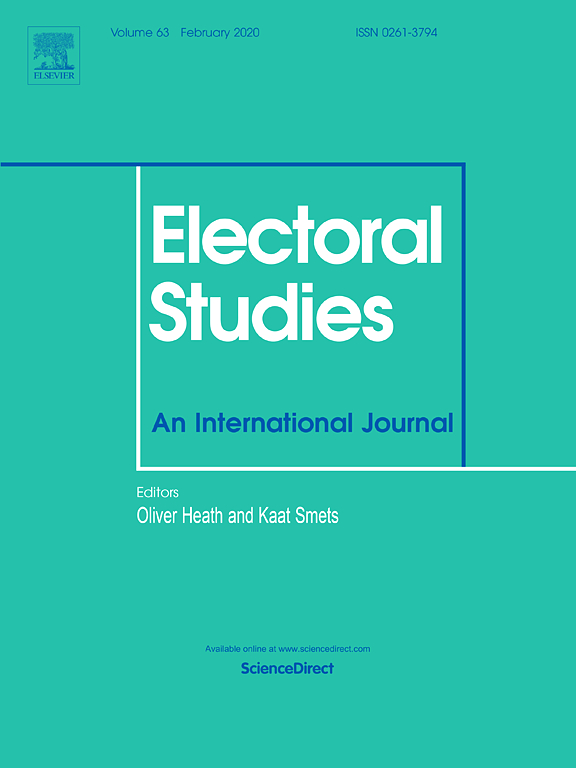Per citare l’articolo:
Paparo, A., De Sio, L., & Brady, D. W. (2020). PTV gap: A new measure of party identification yielding monotonic partisan attitudes and supporting comparative analysis. Electoral Studies, 63, 102092, https://doi.org/10.1016/j.electstud.2019.102092
Scarica l’articolo qui.
Abstract:
Despite the cornerstone role of party identification for analyzing voting behavior in the United States, its measurement (in terms of the classic American National Electoral Studies – ANES – seven-point scale) is affected by a systematic problem of non-monotonicity, and it proved impossible to be directly applied outside the United States. We introduce a novel, complementary measurement approach aimed at addressing both problems. We test on US data (an expressly collected computer-assisted web interviewing survey dataset) a new, seven-point scale of partisanship constructed from PTV (propensity-to-vote) items, acting as projective devices for capturing partisan preferences, and routinely employed in multi-party systems. We show that a PTV-based (suitable for comparative analysis) seven-point scale of partisanship outperforms the classic ANES scale. Groups identified by the new scale show monotonic partisan attitudes, and the comparison of multivariate models of political attitudes testify significantly larger effects for the new scale, as well as an equal or higher predictive ability on a range of political attitudes.
Per citare l’articolo:


